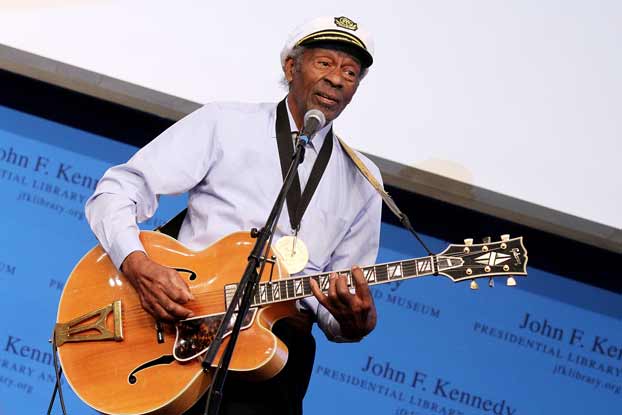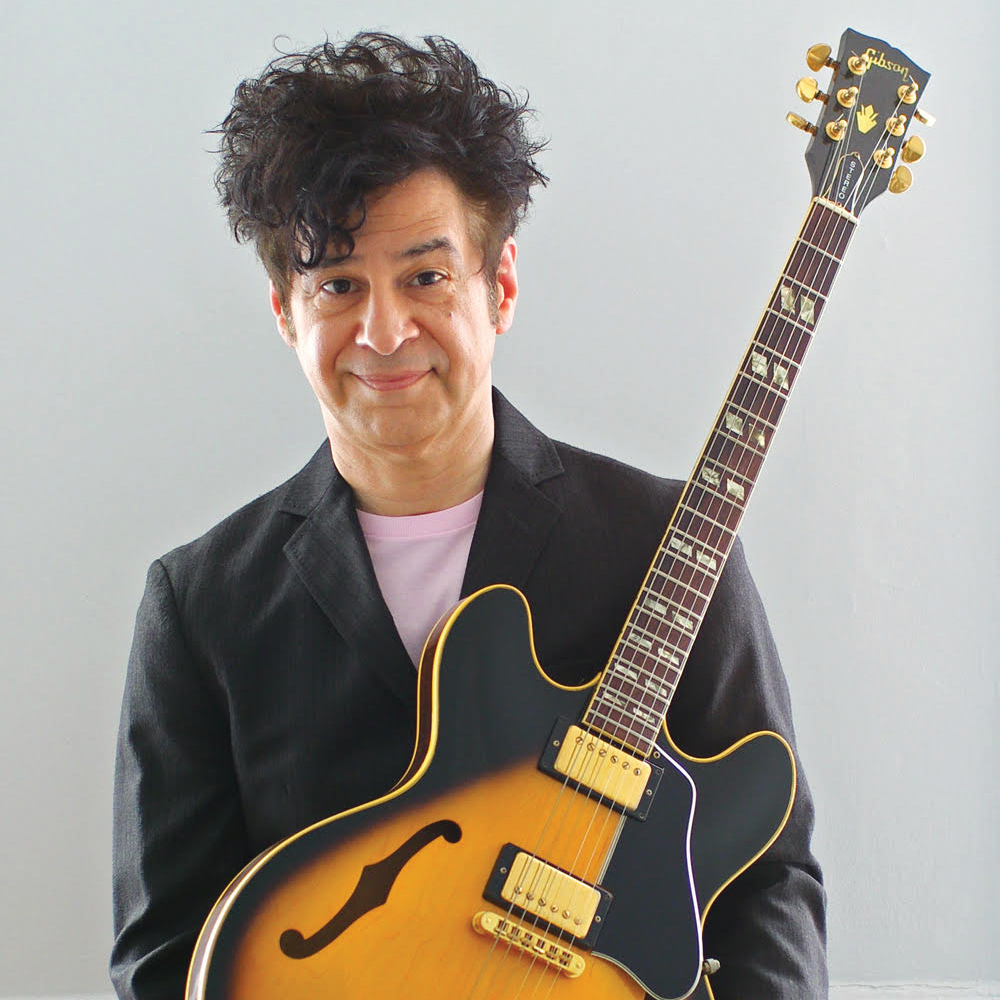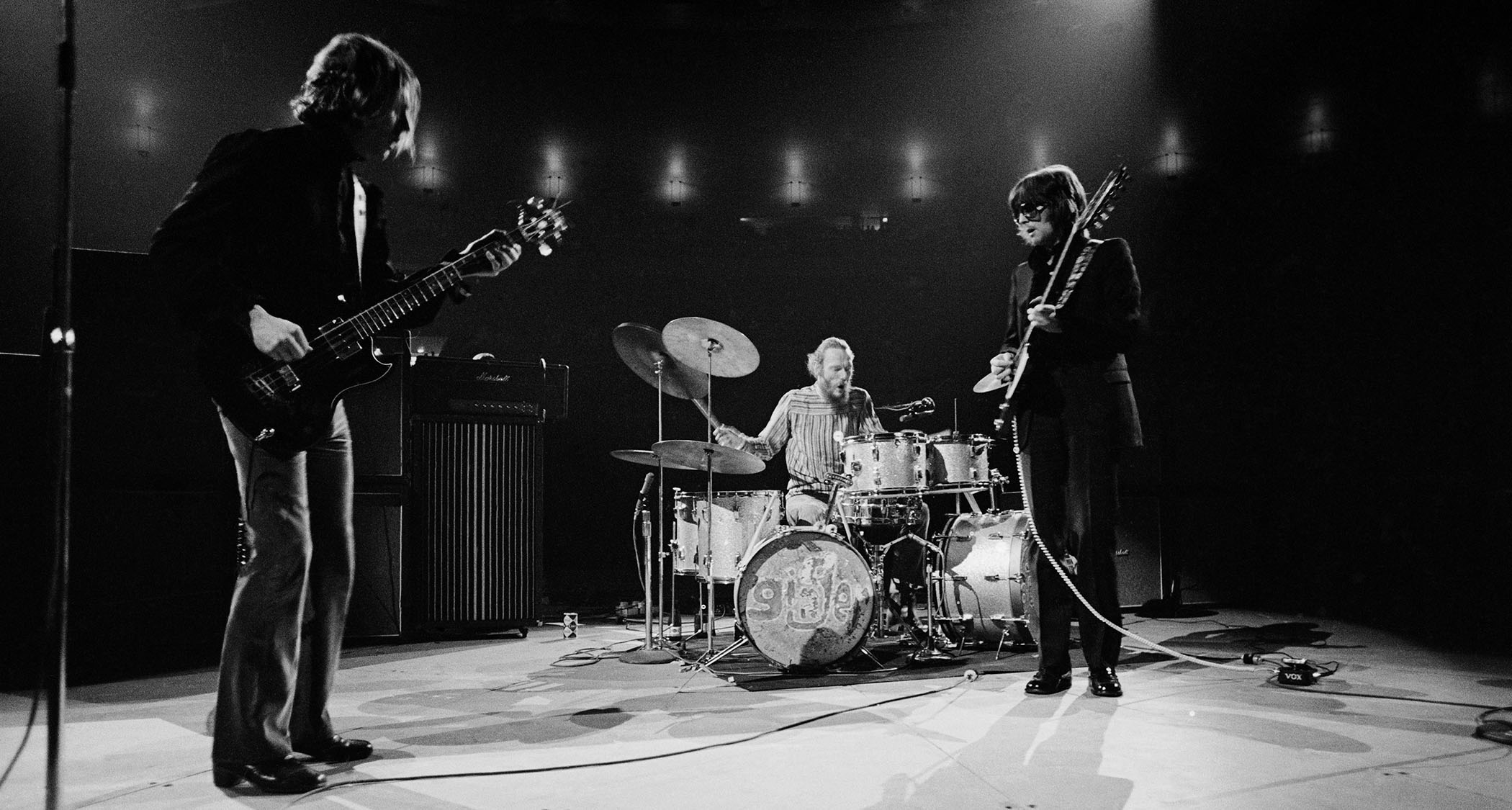How to Play Chuck Berry’s “Johnny B. Goode”
All the latest guitar news, interviews, lessons, reviews, deals and more, direct to your inbox!
You are now subscribed
Your newsletter sign-up was successful

Chuck Berry wrote dozens of rock and roll classics, but perhaps the best-known of them all is “Johnny B. Goode.” The track was a Number Two Billboard hit when it was released in 1958 during the first rock and roll boom and went on to influence rock and roll guitarists throughout the next decades.
Berry wrote the song in 1955, lifting the opening guitar riff pretty much verbatim from the single-note opening riff to Louis Jordan’s 1946 recording “Ain’t That Just Like a Woman,” but adding double-stops to fatten it up.
The success of “Johnny B. Goode” inspired Berry’s followup songs “Bye Bye Johnny” and “Go Go Go,” as well as his 1969 album Concerto in B. Goode and its nearly 19-minute title track. The significance of “Johnny B. Goode” was acknowledged when the song was inducted into the Grammy Hall of Fame in 1999 for its influence as a rock and roll single.
In this video, uploaded more than a year ago on December 24, 2015, Paul Davids provides a thorough lesson in how to play “Johnny B. Goode,” complete with backing track, available here.
Paul takes you through the track note by note and then performs the intro at 120 bpm and 145 bpm (the original is played at about 170 bpm). He includes several camera angles and tab, so if you’ve wanted to learn Berry’s classic riffs, here’s your opportunity.
Be sure to check out Paul’s other videos, including his lessons and gear comparisons, at his YouTube channel.
All the latest guitar news, interviews, lessons, reviews, deals and more, direct to your inbox!
Christopher Scapelliti is editor-in-chief of Guitar Player magazine, the world’s longest-running guitar magazine, founded in 1967. In his extensive career, he has authored in-depth interviews with such guitarists as Pete Townshend, Slash, Billy Corgan, Jack White, Elvis Costello and Todd Rundgren, and audio professionals including Beatles engineers Geoff Emerick and Ken Scott. He is the co-author of Guitar Aficionado: The Collections: The Most Famous, Rare, and Valuable Guitars in the World, a founding editor of Guitar Aficionado magazine, and a former editor with Guitar World, Guitar for the Practicing Musician and Maximum Guitar. Apart from guitars, he maintains a collection of more than 30 vintage analog synthesizers.

